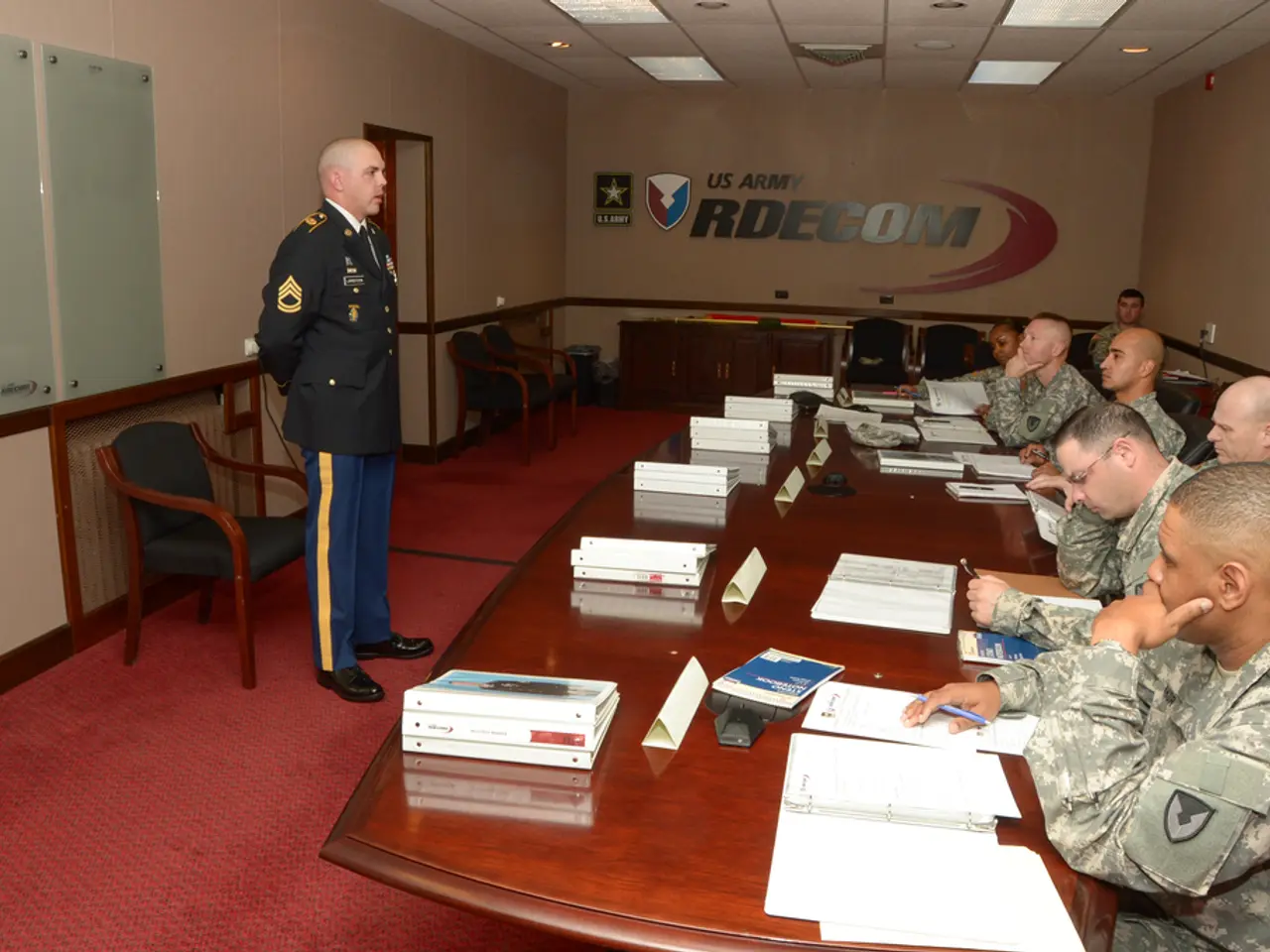IRS Reverses Decision on Job Cuts at Civil Rights Division, Initially Earmarked for Downsizing
The Internal Revenue Service (IRS) is currently grappling with a significant staffing crisis, as the agency has lost over a quarter of its workforce under the Trump administration. This reduction in staff has been a result of a combination of layoffs and voluntary separation incentives.
The IRS has issued a warning that without these hires, it will only be able to answer about 16% of phone calls during the next year's filing season. This shortage of staff could lead to longer wait times for taxpayers seeking assistance.
One of the hardest-hit departments is the Office of Civil Rights and Compliance, where nearly 80% of the staff received RIF (Reduction in Force) notices in April. The National Treasury Employees Union (NTEU) has filed a national grievance challenging the IRS's refusal to accept employees' requests to withdraw their resignations. The union later amended its grievance to include employees seeking to withdraw their signed DRP (Deferred Retirement Program) agreements and to withdraw their applications for VERA (Voluntary Early Retirement Authority) or VSIP (Voluntary Separation Incentive Payment).
Despite these challenges, the IRS is planning to hire 11,000 call center representatives for its fiscal 2026 budget. However, earlier this week, the agency posted and then cancelled 4,500 customer service representative positions on USAJobs.
The IRS's staffing issues come as the U.S. government is actively advancing Zero Trust Architecture (ZTA) implementation across agencies. This shift towards ZTA includes efforts to enhance workforce capability and improve customer service by adopting zero trust principles that strengthen identity security. The IRS is expected to align with standards like NIST SP 800-207 and CISA’s Zero Trust Maturity Model, which frame the path toward secure, interoperable, scalable identity security systems supporting workforce and citizen service improvements.
Key federal Zero Trust efforts include adopting a security framework assuming zero implicit trust, requiring continuous identity verification, device validation, and least-privilege access. There is also an emphasis on cultural and operational shifts in IT teams to embrace continuous monitoring and shared responsibility for identity and access management. Agencies, including potentially the IRS, are also expected to incorporate next-generation identity technologies such as biometrics and passkeys to enhance authentication resilience within a zero trust model.
The IRS Commissioner, Billy Long, has informed employees in the Office of Civil Rights and Compliance that their RIF notices received in April are being cancelled. The IRS is also rescinding layoff notices for its civil rights office.
However, the current leadership environment at the IRS is the most dire in the association's history, according to the PMA Executive Director, Kelly Reyes. The Professional Managers Association, which represents IRS managers and supervisors, has noted a trend of its members voluntarily downgrading to non-management roles due to pay not justifying the added stress and work required by management positions.
The IRS is asking for $852 million to make these hires and to roll out automation tools. The NTEU expects to receive a response from the IRS by Aug. 7 regarding its grievance challenging the IRS's refusal to accept employees' requests to withdraw their resignations.
For those interested in contacting the reporter about recent changes in the federal government, email jheckman@our website or reach out on Signal at jheckman.29.
Note: 1. [1] - Sources: OMB Memorandum M-22-09, Executive Order 14028, NIST SP 800-207, CISA’s Zero Trust Maturity Model 2. [2] - Source: Federal Times 3. [3] - Source: FedScoop 4. [4] - Source: Government Executive 5. [5] - Source: Nextgov
[Contact Information] If you would like to contact this reporter about recent changes in the federal government, you can email jheckman@our website or reach out on Signal at jheckman.29.
Sports enthusiasts may find it challenging to seek assistance about their tax-related issues during the next year's filing season, as the Internal Revenue Service (IRS) is planning to hire only enough call center representatives to answer about 16% of phone calls.
With the IRS's current staffing issues and emphasis on Zero Trust Architecture implementation, sports leagues or organizations might face extended wait times when interacting with the tax agency for assistance.







